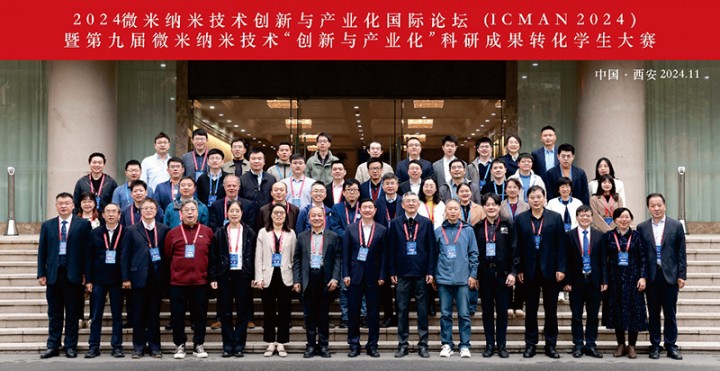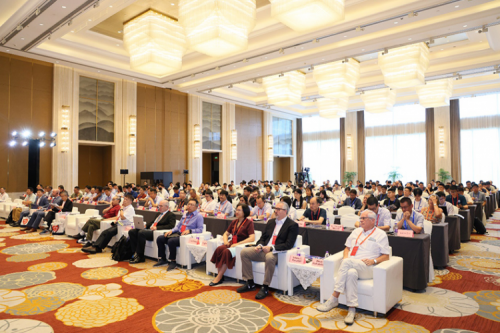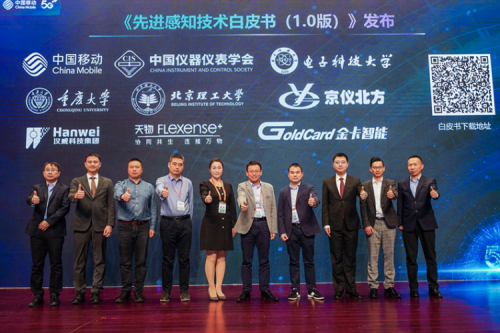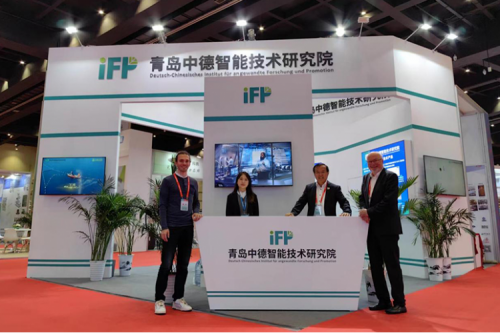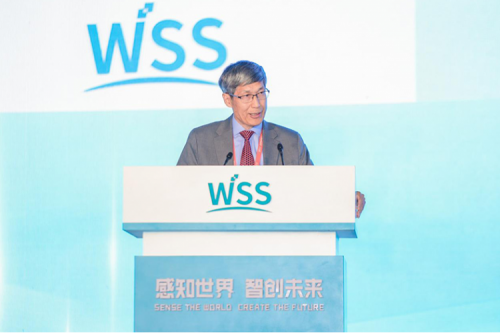2024 International Workshop on Innovation and Commercialization of Micro & Nanotechnology was Successfully Held
Approved by the China Association for Science and Technology (CAST), the 2024 International Workshop on Innovation and Commercialization of Micro & Nanotechnology (ICMAN2024) was successfully concluded in Xi'an from November 2 to 4, 2024. Organized by China Instrument and Control Society (CIS) and Tsinghua University, and hosted by Northwestern Polytechnical University, the workshop attracted over 200 experts, researchers, and industry professionals in the micro & nanotechnology field. The workshop centered around the theme "From Sensor Chips to Instruments," focusing on the manufacturing of micro-nano devices and the research in micro-system technology. It facilitated academic exchanges and industry promotion, aiming to advance innovation and industrialization in micro-nano technology.
The opening ceremony was hosted by Professor Yuan Weizheng, the Vice Chairman of the professional branch for micro-nano devices and Systems Technology of CIS and professor at Northwestern Polytechnical University. Speeches were delivered by Zhang Li, Deputy Secretary-General of CIS; Professor Sun Lining, the Chairman of the professional branch for micro-nano devices and Systems Technology of CIS and Dean of the School of Mechanical and Electrical Engineering at Suzhou University; and Professor Zhan Hao, the Vice President of Northwestern Polytechnical University. The meeting was also attended by Professor Kong Jie, Director of the International Cooperation Office at Northwestern Polytechnical University.
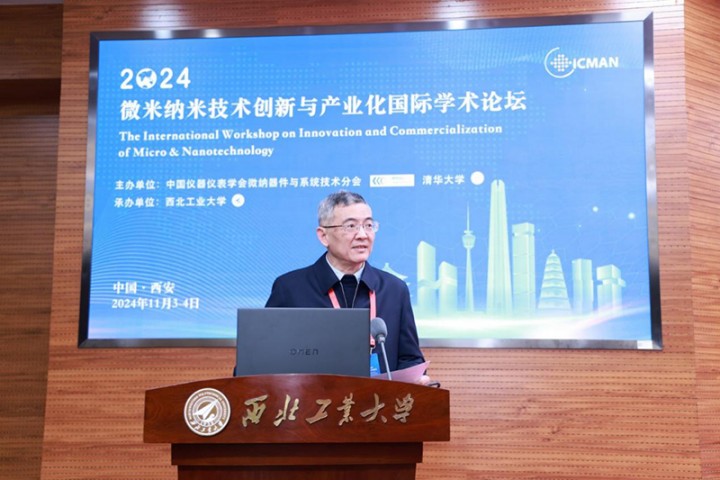
Hosted by Prof. Yuan Weizheng, the Vice Chairman of the professional branch for micro-nano devices and Systems Technology of CIS
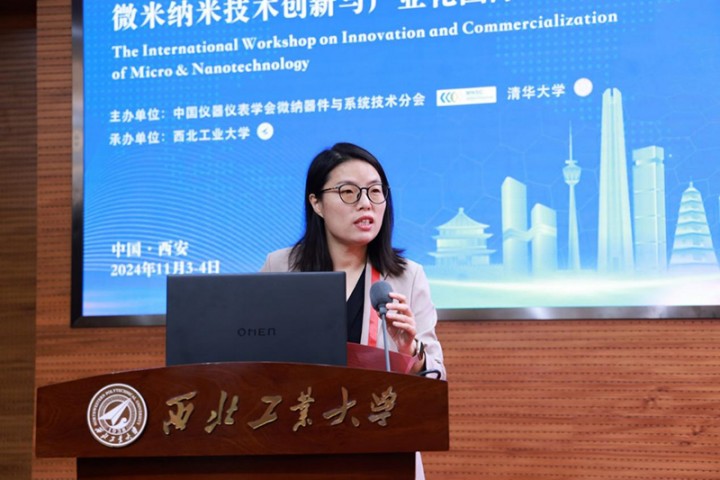
Deputy Secretary-General of China Instrument and Control Society (CIS),ZhangLi
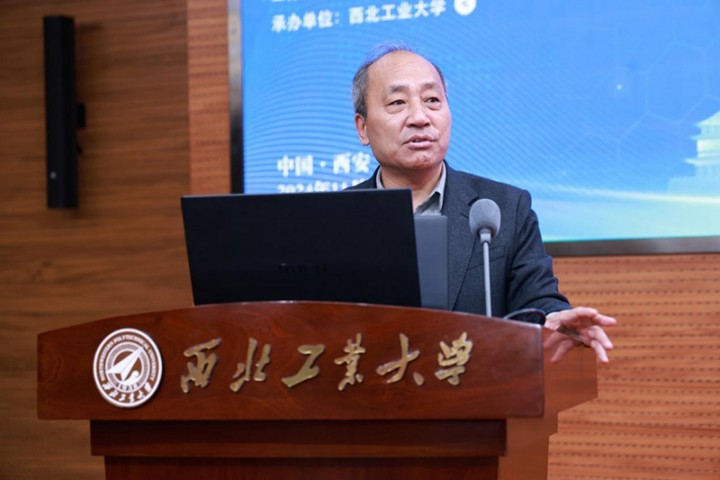
Prof. Sun Lining, the Chairman of the professional branch for micro-nano devices and Systems Technology of CIS
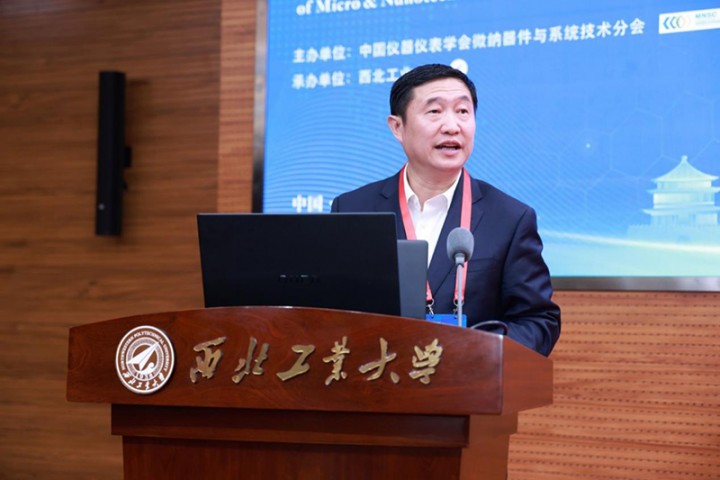
Prof. Zhan Hao, Vice President of Northwestern Polytechnical University,
A total of 25 experts, scholars, and entrepreneurs from universities, research institutes, and enterprises delivered outstanding presentations. The keynote speeches were given by Professor Zhu Rong, Executive Vice Chairman of of the professional branch for micro-nano devices and Systems Technology of CIS, from Tsinghua University; Professor Ma Binghe from Northwestern Polytechnical University; and Chief Expert Zhang Xiaoshui from Hanwei Technology Group.
Prof. Sun Lining discussed the current trend of "robotic intelligence as an important development trend, with micro-nano perception being a key foundational and core technology for robots." He shared insights on the applications of intelligent products, represented by robots, in smart manufacturing and smart living, as well as the cutting-edge technologies and development trends in robotics. He placed a particular emphasis on the current state of development of micro-nano perception technology and its integration and application in robotics.
Prof. Yuan Weizheng mentioned the importance of learning from nature, progressing from "similar forms" to "similar spirits" and finally to "superior forms." He highlighted that biomimetic micro-nano structures are at the forefront of micro-nano technology and possess vast application potential in various fields. He illustrated how the anti-ice and snow phenomenon observed in the high-altitude arrow bamboo of the Qinling Mountains, along with the ice-dissipating and drag-reducing micro-nano functional structures influenced by the geomorphology of the Kumtag Desert, provide innovative pathways for biomimetic skin technology and enhance the performance of modern vehicles.
Prof. Li Zhengguo reviewed and emphasized the progress made in artificial intelligence sensors and AIoT (Artificial Internet of Things) sensing systems. His team utilized the lightweight, compatible, and comfortable characteristics of wearable sensors, along with AI for intelligent data analysis, to open up new fields in personalized medicine, human-machine interaction, and immersive experiences in the metaverse. In-sensor computing has been developed as an emerging method to achieve edge computing in IoT sensing systems.
Prof. Li Xinxin introduced in his keynote presentation the team's invention of an integrated MEMS (Micro-Electro-Mechanical Systems) sensing measurement chip that improved mass resolution by six orders of magnitude to below 1 picogram. This advancement allowed for the first time dynamic measurement of the number of active molecules at a level corresponding to statistical thermodynamics and kinetic processes. The measurement methods of the sensing chip were organically combined with theories of material physicochemical properties and quantification characterization equations, along with the development of relevant instrument software and hardware technologies, leading to the global debut of a series of innovative micro-chipped instruments.
Prof. Xie Huikai, in his keynote speech, analyzed the development history of optical MEMS technology and pointed out that Digital Micromirror Devices (DMD) still dominate the optical MEMS market. So, where will the next opportunities for optical MEMS lie? Will it be in MEMS laser radar, MEMS depth cameras, AR/VR glasses, space laser communication, miniature spectrometers, or optical microscopy for precision medicine? Even alternative technologies to DMD? These questions were explored in the presentation.
The invited reports were hosted by Professor Tao Kai from Northwestern Polytechnical University, Researcher Liang Jingqiu from the Changchun Institute of Optics, Fine Mechanics, and Physics, Chinese Academy of Sciences, and Professor Liu Huicong from Soochow University. Keynote presentations were given by Professor Pavel Neuzil from Northwestern Polytechnical University, Professor Chang Lingqian from Beihang University, Professor Wang Wei from Peking University, Researcher Chen Jian from the Aerospace Information Innovation Research Institute of the Chinese Academy of Sciences, Professor Sang Shengbo from Taiyuan University of Technology, Professor Wei Xueyong from Xi'an Jiaotong University, Professor Dong Jian from Zhejiang University of Technology, General Manager Yang Jianhong from the R&D Department of Suzhou Jingfang Semiconductor Technology Co., Ltd., Researcher Yang Pengling, Director of the Seventh Institute of Northwest Nuclear Technology Research, and Professor Fu Yongqing from Northumbria University in the UK.
The Youth Expert Forum was leaded by Professor Liu Huicong, an executive member of the professional branch for micro-nano devices and Systems Technology of CIS, and hosted by Professor Yang Zhuoqing from Shanghai Jiao Tong University and Professor Zhang Hemin from Northwestern Polytechnical University. Reports were presented by Professor Zhang Jia from Harbin Institute of Technology, Associate Professor Shao Lei from Shanghai Jiao Tong University, Distinguished Researcher Liu Shiqiang from Tsinghua University, Professor Wang Nan from Shanghai University, Distinguished Researcher Wang Zhuqing from Sichuan University, Professor Li Tianming from Northwestern Polytechnical University, Assistant Professor Zhang Duo from Hong Kong Chinese University (Shenzhen), Professor He Jian from North University of China (replaced by Zhang Jie), Assistant Professor Wang Yuan from Macao University, and Lu Yang (replaced by Cheng Yuxin), Director of the Electrical Sensing Laboratory at the PowerChina Electric Power Research Institute.
Experts, researchers, and renowned entrepreneurs from the domestic and board gathered to exchange unique insights on MEMS technology, micro-nano device manufacturing, and micro-system technology research. They shared their respective research achievements to promote the exchange and development of technologies in the micro-nano field.
Additionally, during the conference, two technical visiting were organized, hosted by Prof. Yuan. Some delegates visited the Micro-Nano Systems Laboratory at the School of Mechatronics Engineering at Northwestern Polytechnical University. The aim was to provide a deeper understanding of the development history of the laboratory, introduce the composition and structure of the high-level innovative team, highlight industry-academia-research partnerships, and showcase representative outstanding scientific research achievements.

ICMAN2024 provides an important technical exchange platform for experts, scholars, entrepreneurs, and researchers globally and promotes innovation and industrialization of micro-nano technology and sensors. It also serves as a link for collaboration between the academic and industrial sectors to jointly advance the industrialization of advanced technologies.
